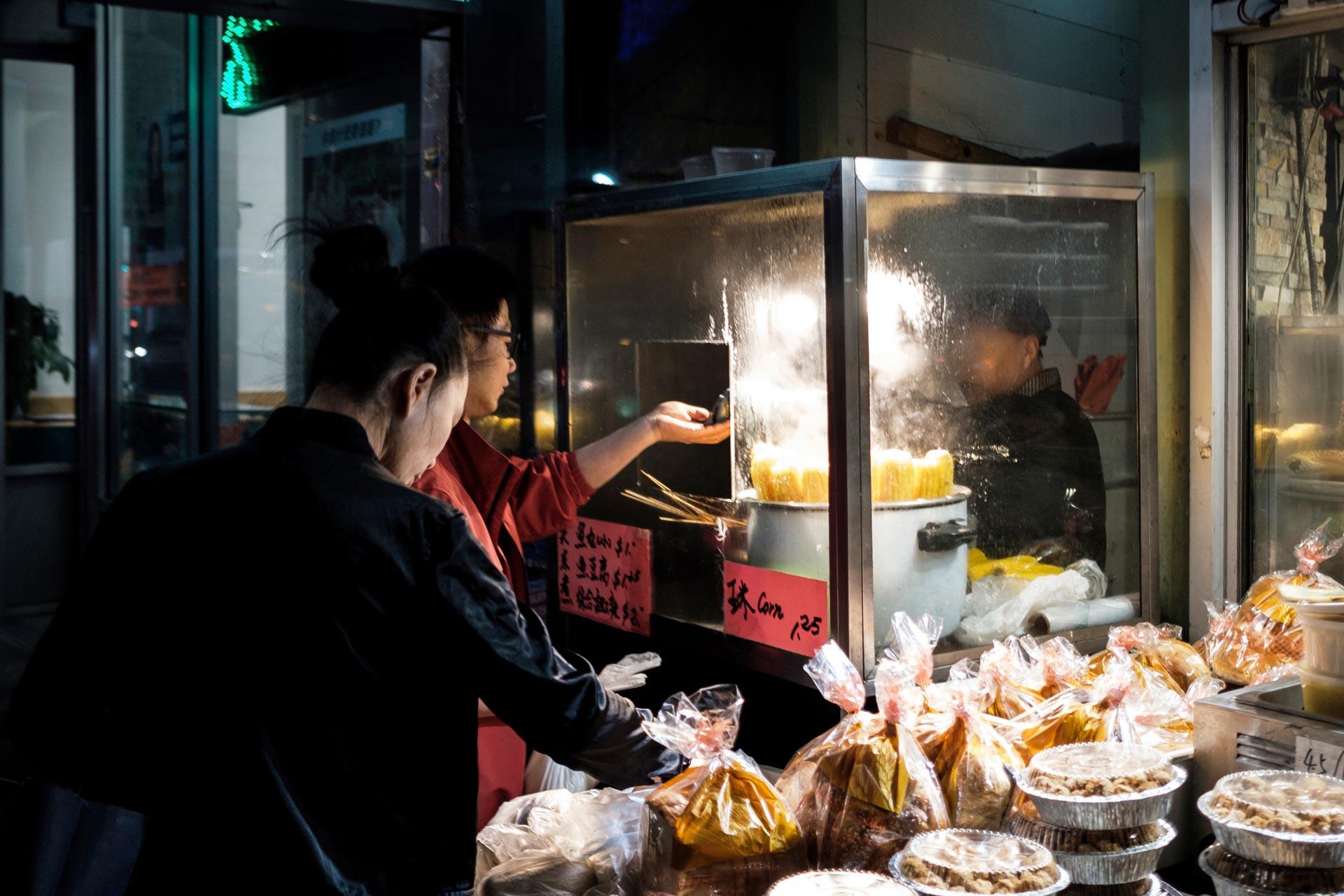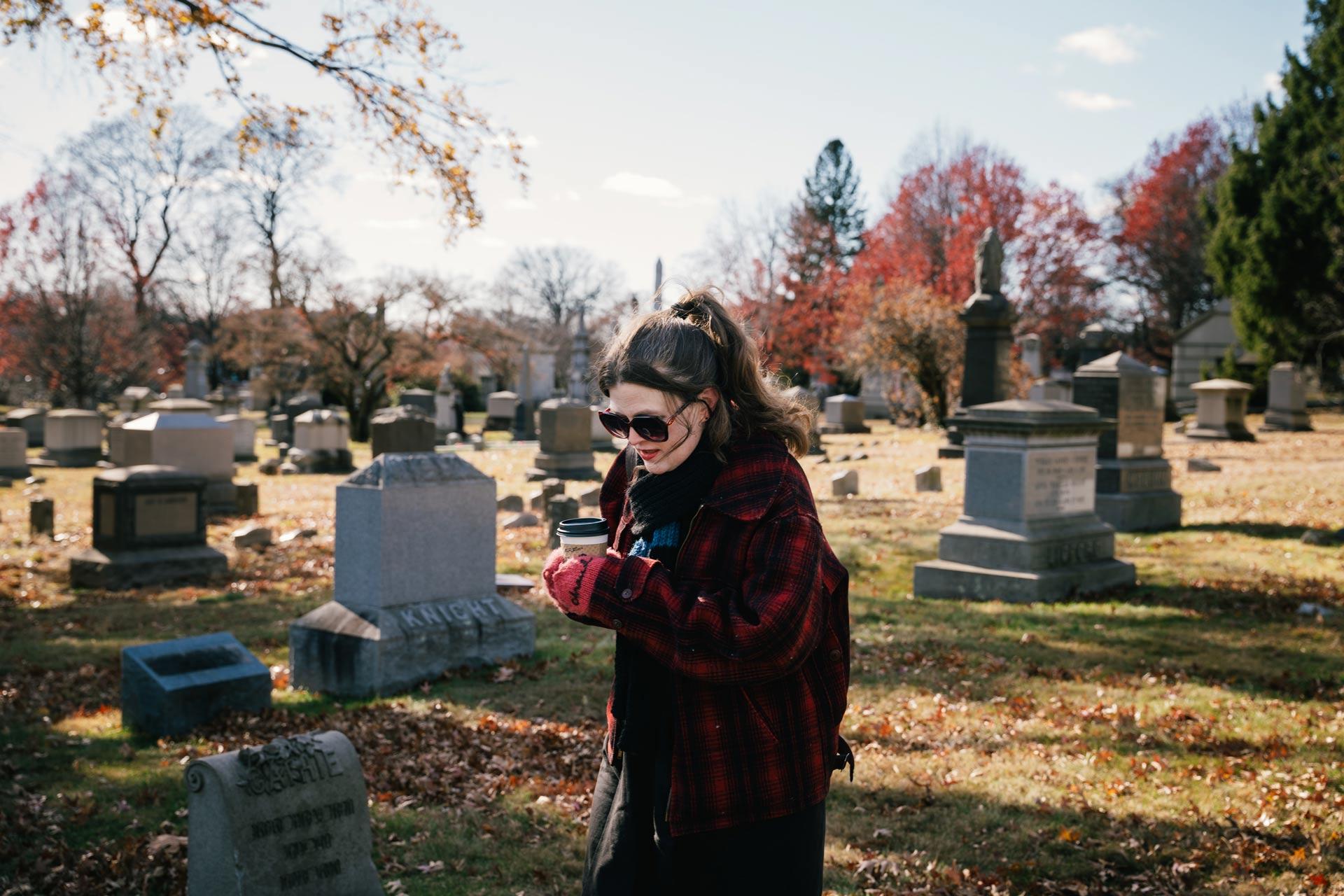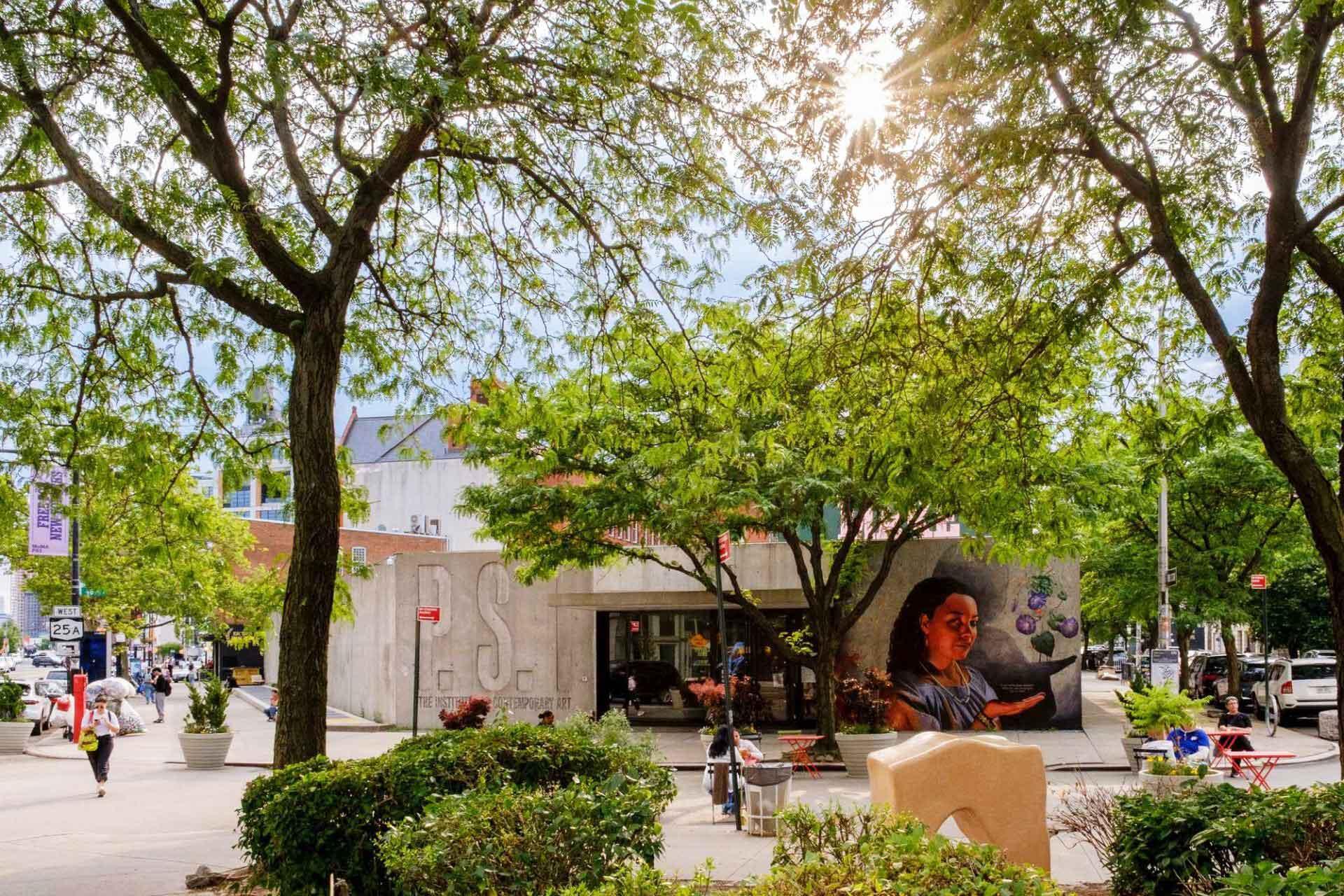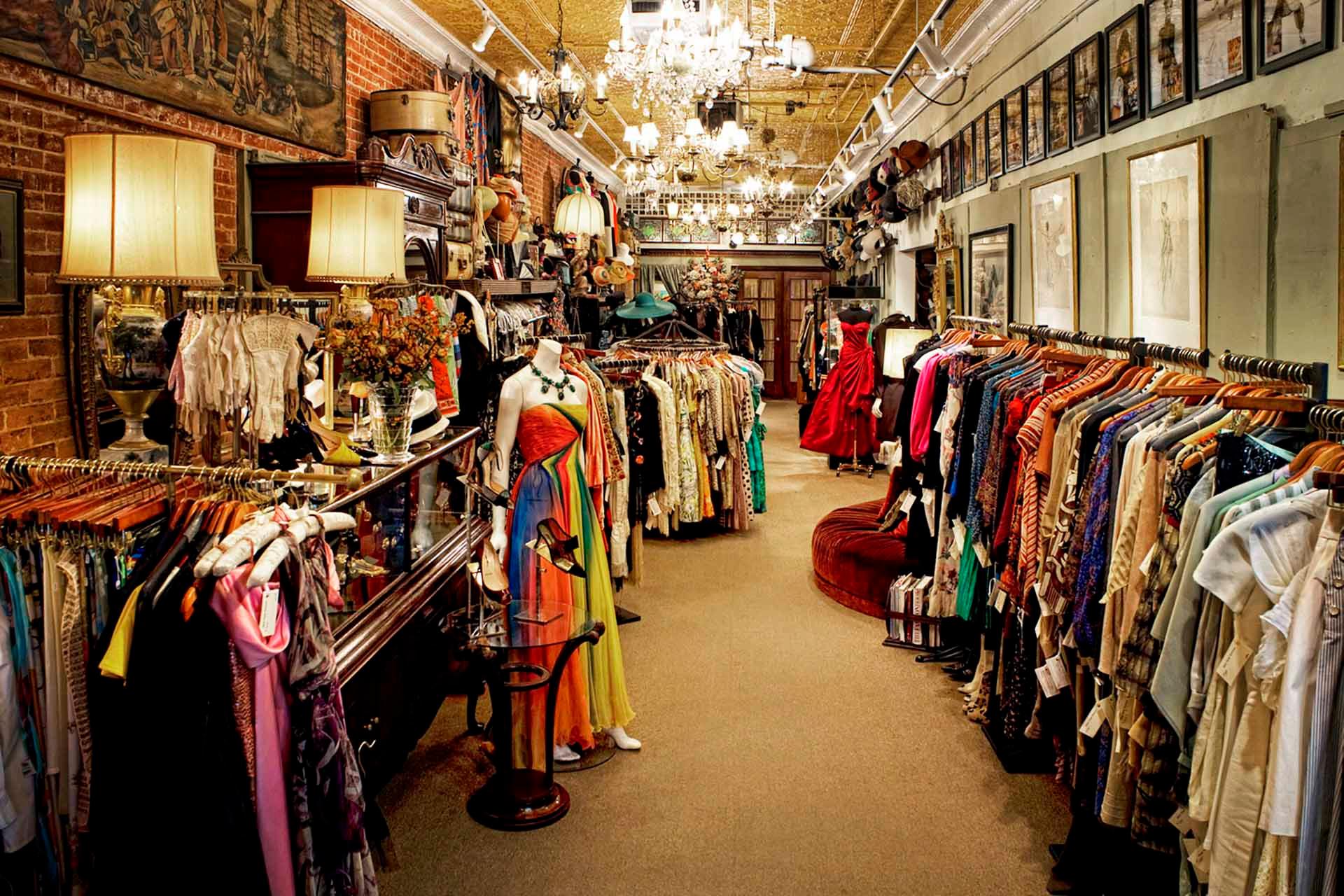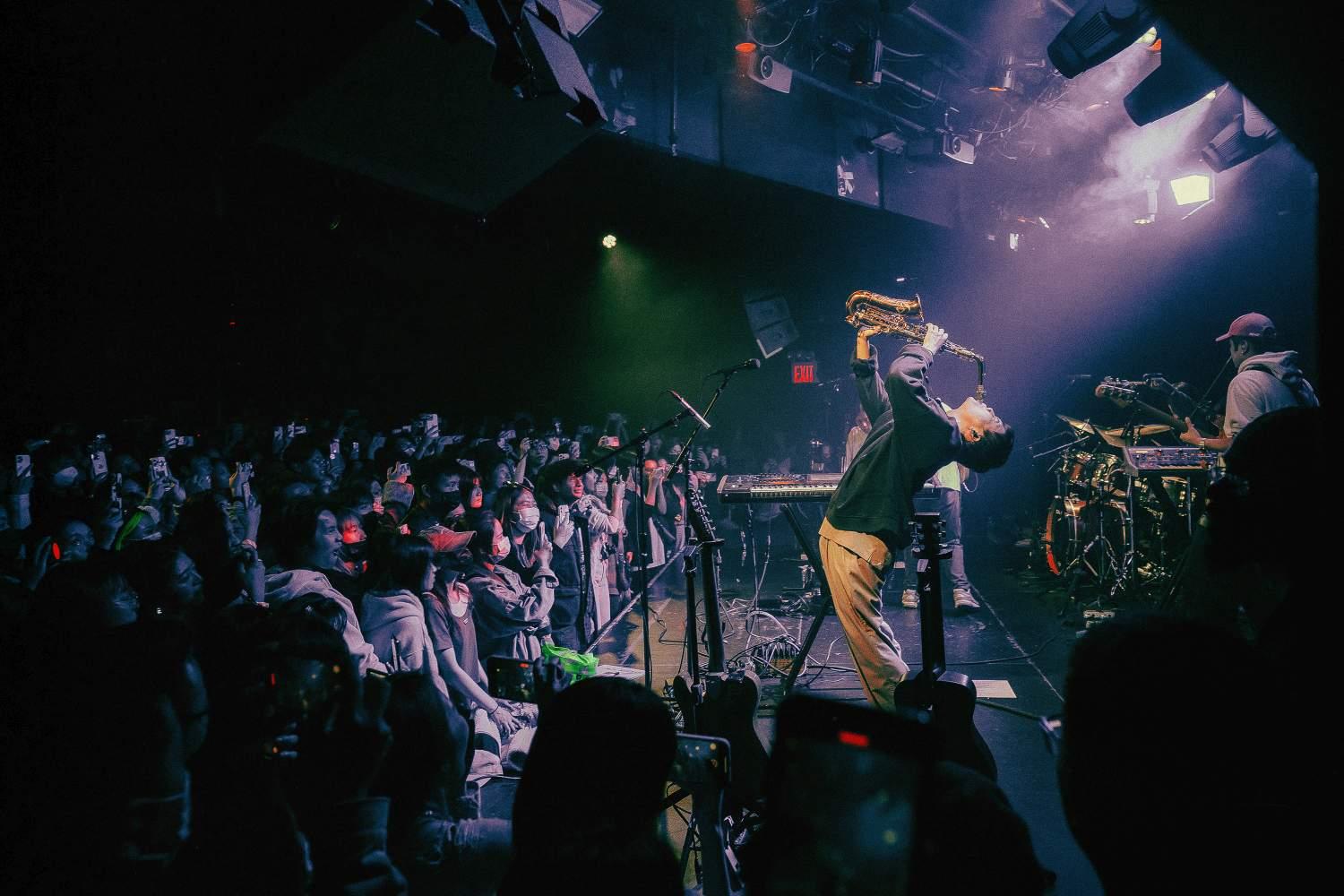What We’ve Built is a series of portraits and conversations with AAPI business owners and leaders who’ve created space for their community in their neighborhoods and beyond.
New York City is one of the world’s food capitals—and for good reasons. For many locals and visitors, it’s that you can sample cuisine from almost anywhere in the world. For the trio behind Yumpling, a Taiwanese café in Queens, it’s that you can find a taste of home.
Yumpling started as a food stall at the Long Island City Flea in 2015; it was the go-to spot for pan-fried dumplings and fried chicken sandwiches. Later, it evolved into a popular food truck in Midtown, powered by Queens native Jeff Fann and his college friend Howie Jeon. Inspired by Fann’s grandmother’s Taiwanese cooking and determined to expand the menu at Yumpling, the two traveled to Taiwan for some on-the-ground research. In 2017, they joined forces with Taiwan native Chris Yu, and three years later the partners brought Taiwanese cuisine to Long Island City, this time in a brick-and-mortar space.
The team was welcomed back to LIC with open arms—so much so that they ran out of food and had to close early on opening day.
We talked with Jeff, Howie and Chris about what it’s like to be back in LIC, and the power of food to make us feel at home.

Yumpling started out at the LIC flea, then moved to Midtown. Now you’re back in LIC. Has your clientele changed from location to location?
Jeff Fann: I think there’s something about flea markets where people are coming to support local businesses. Many of those people are still our customers. I think the biggest change was when we switched to a food truck in Midtown. Our clientele became the business lunch crowd. They move quickly. They work in high-stress environments. Lunch is the one time a day they can have a moment to themselves. Whenever people tell us they’re willing to wait in long lines to eat our food, that’s a huge compliment.
How does it feel to be back at your home base?
JF: When it came time to find a spot, I pitched very hard for LIC. I think Chris and Howie both saw the appeal immediately. The demographic is very supportive. The day we opened, we got slammed so hard, we ended up having to close early. It was horrifying, but also amazing that so many people sought us out, even during the pandemic.

Howie Jeon
What does it mean to you to be part of New York City's small-business community and local Asian American community?
Howie Jeon: I’m not Taiwanese, but I do know that there is an overall lack of Taiwanese restaurants in New York City. I think we play a big role in filling that gap for the neighborhood. I don't think there is another Taiwanese restaurant anywhere close to us.
JF: I think Howie’s point is really the main thing that we think about when we think about our area and a lot of the value that we bring, beyond just making food for people. I’m Taiwanese American. My parents were from Taiwan, and I grew up here. Chris grew up in Taiwan and then moved here. So for us, it's a very large part of who we are. I'm probably way more Taiwanese now than I was before we started this because so much of what we had to do was get back to our roots, so it forced me to look at all my experiences growing up, and through the lens of, How does this fit into the culture of where my parents came from? In terms of locals, I think all neighborhoods need good food. We felt that because LIC had transitioned from being a lot more industrial to suddenly being zoned for all these huge high-rises and having all these people move in…we are a part of that landscape now.

Jeff Fann
A lot of times the broad term “Asian American” is what people think when they see someone who looks like us. Does that term resonate with you?
JF: Until very recently, if someone asked me how I identify, I would’ve just said “American.” A lot of that had to do with the fact that I wasn’t even sure what it meant to be Taiwanese growing up. You know, you’re learning about American history and people like George Washington. They don’t look anything like you. I think every Asian American kid has to figure out what that means for them as they grow up.
HJ: Ever since I was a kid, I’d say I identified as Asian American. Growing up, I was in Flushing and later moved to Bayside. Both [Queens] neighborhoods are heavily Asian populated. I guess I’d say I was lucky to have never felt out of place.
Chris Yu: I’ve been in the US for 20 years, but I feel like my core values, friends, palette and way of thinking are still very much on the Asian side. When we try to come up with recipes, I always tell Jeff how it used to taste in Taiwan, you know? That’s sort of how I identify: Asian American. But I consider myself to be more on the Asian side than the American side.

Chris Yu
Given how you all identify, how would you say this affects the work you’re doing?
JF: It’s definitely made me more Taiwanese. [Laughs] My parents found it funny that at this point in my life, I was curious about Taiwan and where I came from. I didn’t fully appreciate that when we first started this, but it’s made me much prouder of what is a very small place in the world. It’s been a way to discover part of myself that was always there, but kind of dormant.
HJ: Anything that increases Asian representation, I’m all for. Food and pop culture are probably the two biggest avenues that people first gain exposure to a different culture. By serving good food, I think we’re reaching a lot of people that never would’ve taken a second look at Taiwan.
As part of What We've Built, photographer Tommy Kha asked his subjects to take their own photos, centering on the theme of community. Each subject was given a disposable camera and a list of prompts to capture a few moments in their days. This is what Jeff, Howie and Chris saw.

Alexandra Lim-Chua Wee is a writer based in Sunset Park, Brooklyn. When she isn’t writing about community and culture in NYC, she continues the search for kolo mee as good as her dad’s and tocilog as good as her mom’s.


